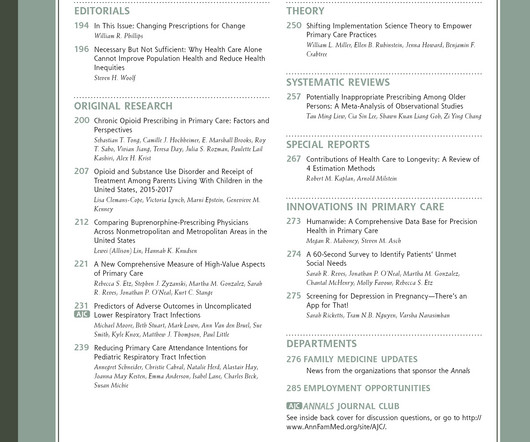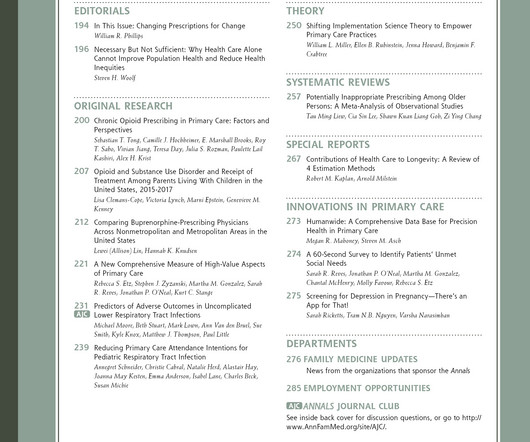Patient Advocacy Group Leaders Perceptions on Primary Cares Role in Caring for Patients with a History of Breast Cancer [Health care services, delivery, and financing]
Annals of Family Medicine
NOVEMBER 20, 2024
Context Patient advocacy groups engage patients, families, and caregivers in navigating the cancer landscape, focusing on early detection/screening, as well as psychosocial and financial support during treatment. As these groups have grown, they have major influences over their communities, funding, and policy.















Let's personalize your content